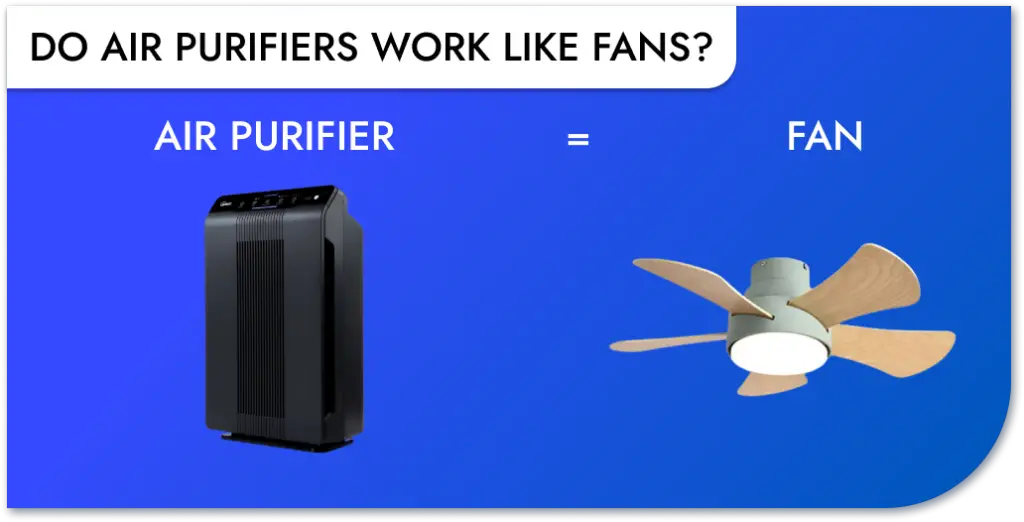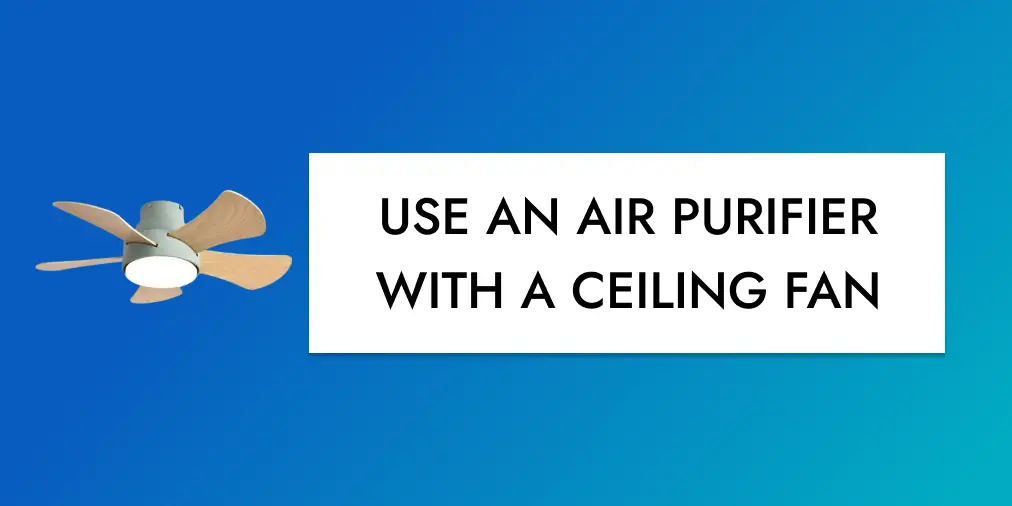Some people think that running an air purifier will decrease the effectiveness of your device. Others believe it’s just enough to cool down hot summer days and keep dust away during power outages! But what about in the cold winter months when you need more warmth? so can we use an air purifier with a ceiling fan? let’s find out below
A ceiling fan can be used as white noise while sleeping to soothe baby’s ears, but should they also help with heating needs at night time by circulating heat through other areas of the house before going into their nursery area – even if there is no visible sign-on?
Is it possible for air purifiers to be improved by utilizing ceiling fans?
Ceiling fans do not assist air purifiers in improving indoor air quality, even if you point a fan at the purifier and blow particles toward it. While this would result in the purifier catching more dust and pollutants, it puts pressure on the unit, causing accelerated wear and tear and possibly leading to failure sooner.
Do Air Purifiers Work Like Fans?

Some air purifiers include built-in fans, which produce a little breeze. When there’s a heatwave, the tiny breeze produced by the air purifier fan isn’t significant, but it makes a difference. The goal of a ceiling fan in an air purifier is to disrupt pollution particles and transport them about so they are trapped in the device.
If you’re looking for a way to keep your room cool and clean during summer, an air purifier with a fan is the best option. The small breeze created by these units can make all of the difference in improving indoor pollution levels!
What Is The Difference Between An Air Purifier And A Ceiling Fan?
Ceiling fans are designed to circulate air rather than purify it, improve indoor air quality, or heat or cool a room. A ceiling fan’s primary purpose is to move air rather than purify it, maintain temperature levels in a room, or chill or warm it. The basic purpose of an air purifier is to clean the surrounding air to remove dust and other particles. A ceiling fan does not clean or scrub indoor air, and if you turn it up high enough, it sends more dust, pollen, pet dander, and other pollutants into the room.
When you pair a ceiling fan with an air purifier, it can overheat and overload the system. The more particles that are sent towards your machine makes things harder on all of them–which leads to increased wear-and-tear as well as rapid clogging up of filters faster than before! You then might notice poor indoor quality even though they’re running simultaneously
Why you should run fan and air purifier separately?
There may be situations where it’s better to run a fan and air purifier separately rather than at the same time. Here are a few reasons why:
- Noise: Some air purifiers can be noisy when they’re operating, which can be distracting or disruptive, especially if you’re trying to sleep or work. In these situations, it may be better to run the air purifier on its own during the day and use the fan to circulate the air in the room when you’re not using the air purifier.
- Airflow: Depending on the location of the air purifier and fan in the room, running them at the same time could disrupt the airflow in the room. If the fan is blowing air directly at the air purifier, for example, this could interfere with the air purifier’s ability to draw air through its filters and clean the air effectively.
- Energy consumption: Running both the fan and air purifier simultaneously could consume more energy and increase your energy bill. If you’re trying to reduce your energy usage, it may be better to use them separately or to invest in an air purifier with a built-in fan to save energy.
How To Make Your Home A Better Air Pollution free
Houseplants are a great way to improve indoor air quality. They’re natural purifiers and can even help filter the toxins you might be exposed to, like pets or glue fumes! But make sure not to water them too often because over-wetting could kill your plant OR lead to an increase in humidity inside of rooms where they’re present which will cause problems with allergies – especially if there isn’t enough ventilation available for everyone who lives at home together as well (that includes animals).
